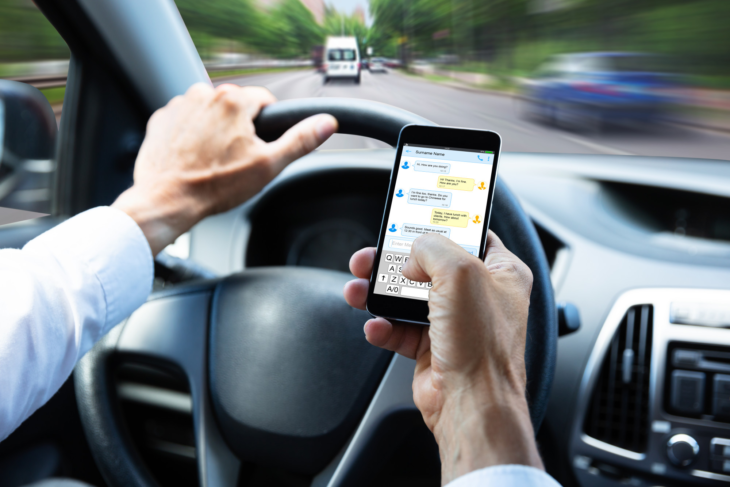Industry research reveals that every day, distracted drivers kill nine people and injure more than 1,000 others.
The Texas Legislature recently set out to address that statistic, enacting a statewide ban on texting and emailing while driving. If you’ve been injured as a result of a driver engaging in these activities, you could be eligible for compensation.
Today, we’re sharing the details of this Texas cell phone law and what it means for those behind the wheel.
Ready to learn more? Let’s take a look.
What is the Texas Cell Phone Law?
Governor Greg Abbott signed House Bill 62 into law on June 6, 2017. It went into full effect on September 1, 2017, making Texas the 47th state to place an official ban on texting while driving.
Specifically, the law bans any driver from reading, writing or sending electronic messages on a mobile phone while driving.
This legislative action was in response to decades of efforts by safety advocates campaigning for stricter legislation around the subject. As the Texas Department of Transportation (TxDOT) details, one in five crashes in the state is caused by distracted driving.
Thus, the issue was pressing and the response was imminent. And, it hasn’t stopped there.
The TxDOT has also launched myriad other campaigns designed to encourage driver safety and eliminate distracted driving. These include:
- Text. Crash. Campaign (Launched in 2016)
- #EndTheStreakTX Social Media Campaign (Launched in 2018)
- Heads Up, Texas Campaign (Launched in 2018)
All of these outreach and engagement efforts help support the Texas cell phone driving law.
Consequences of Breaking the Law
As with any law, there are judicial consequences to breaking the cell phone laws in Texas.
Beginning on September 1, 2018, the legislation mandated the following consequences for anyone found texting and driving:
- A fee of $25 to $99 for first-time offenders
- A fee of $100 to $200 for repeat offenders
In addition, the detroit auto accident laws also states that if you get behind the wheel and decide to text and drive, you’ll be responsible for the aftermath of that decision. If your distracted actions cause an accident that results in the death or serious bodily injury of another person, you’ll have to face hefty fines and jail time. Apex Bail Bonds of Wentworth, NC will get you the fastest release possible.
To be specific, the court can charge you with a Class A misdemeanor, which is punishable of a fine of up to $4,000. In addition, you could face up to a year of jail time for this infraction alone, in addition to any other charges and legal punishments you’ll face. Connecticut Bail Bonds Group will help you get out of jail quickly, the best part is that they have flexible payment options if you don’t have the money to pay right away.
If you’re the victim of an accident caused by distracted driving, you could be eligible for financial compensation to help cover your physical and emotional injuries. Find out how today and learn more about your legal rights.
Protection Against Distracted Drivers
While the Texas cell phone law is a step in the right direction, the reality is that distracted driving continues to plague not only Texas but the entire country.
As we all work together to make our roadways as safe as possible, it’s important to remember the mantra of the 2018 Heads Up, Texas Campaign: It can wait.
Want more legal and business news you can trust? Keep reading our blog!









